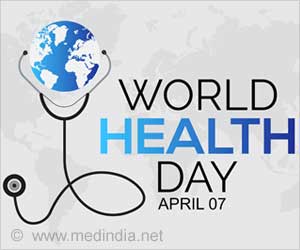A non governmental organization, Corporate Accountability and Public Participation Africa (CAPPA), has sought for improved policies and programmes from the government to safeguard the health of Nigerians.
CAPPA, an NGO that focuses on public health advocacy, environment and social justice among other issues, marked this year’s World Health Day with a webinar where it recommended action plans for the government towards improving the wellbeing of Nigerians.
The World Health Day is celebrated annually every April 7, and each year draws attention to a specific health topic of concern to people all over the world.
CAPPA ‘s’ Executive Director, Akinbode Oluwafemi, explained the reason for the webinar to mark this year’s World Health Day whose team is “My health, my right.”
He said: “We think that it is instructive for us as the biggest environmental resource to use this occasion to discuss how our programming in totality is connected to the well-being of the human person. Whether it is Climate Campaign, Tobacco Control Campaign, Water Campaign, Food, Gender and others. A win for those programmes also means a win for health.”
A lawyer and public health advocate, Barrister Michael Olaniyan made a presentation on the dangers of consuming tobacco.
He said: “When we talk of tobacco control, it’s about the health of everybody. Somebodyay be tempted to say that ‘I don’t consume tobacco, so I’m free from the dangers of tobacco.’ That’s very untrue. Everyone is affected by tobacco one way or another.
“Tobacco is the only legal product that kills half of its consumers when it is consumed exactly the way the manufacturer intended for it to be consumed.”
He called for aggressive action by the government through restrictions of tobacco use in public areas, higher taxes and other measures towards keeping a check on the product.
Policy and Research lead at CAPPA, Zikora Ibeh, spoke on the nexus between gender and public health, while urging for health equity.
She said: “Health equity recognizes that certain groups may face systemic barriers and injustices that impact their health and well-being and seeks to address these disparities to promote fairness and justice in healthcare delivery and outcomes.
“Health equity aims to eliminate avoidable and unfair differences in health status and access to healthcare services among different population groups.
“In Nigeria, several factors affect health equity like socioeconomic status, geographical location, ethnic and cultural diversity, gender.”
She urged the government to put in place policies that will ensure that everyone has a fair and just opportunity to attain their highest levels of health regardless of their social or economic status, ethnicity, race, gender, or other factors.”
In her presentation, Sefa Ikpa, programme officer (Water) at CAPPA, said without access to clean water for drinking, cooking, and personal hygiene, individuals are at increased risk of contracting waterborne diseases such as cholera, typhoid fever, dysentery, and diarrhea.
She said: “Contaminated water sources can harbor harmful pathogens and bacteria that cause these diseases, leading to widespread illness and even death, particularly among vulnerable populations such as children and the elderly.”
While rejecting water privatization, she advocated for public-public partnerships as the most effective solution to water access challenges in Nigeria and across Africa.
She also advocated for
Increased budgetary allocation to the water sector for the development and maintenance of water infrastructure to ensure universal access to clean and safe water sources.
On his part, a Climate Change expert, Ogunlade Olamide Martins, established the linkage between climate change and public health.
He said Climate change is causing existential crises as the physical environment including natural, social, and economic conditions and the functioning of health systems are now susceptible to its impact.
For Joy Amafah, the in-country lead on Food and Nutrition for Global Health Advocacy Incubator, said it is regrettable that our food environment has been swamped with ultra processed food which endangers public health. She said more troubling is the behavioral change towards consuming ultra processed food which is now seen as a thing of class.
She urged the government to step up action in regulating the sector.










More Stories
Speed Darlington denies own claim of sleeping with 15-year-old girl
Japa: Actor Ugezu shares experience of Nigerian doctor in U.S. hiding from other compatriots
Gaming in the Sky: Qatar Airways hosts first-Ever game competition, enabled by Starlink connectivity